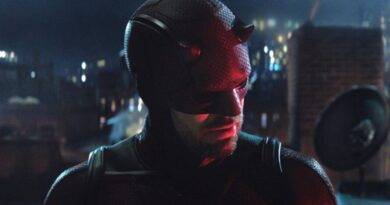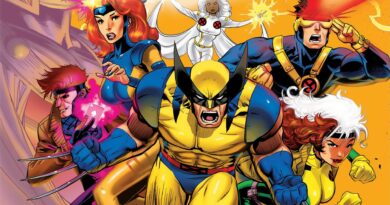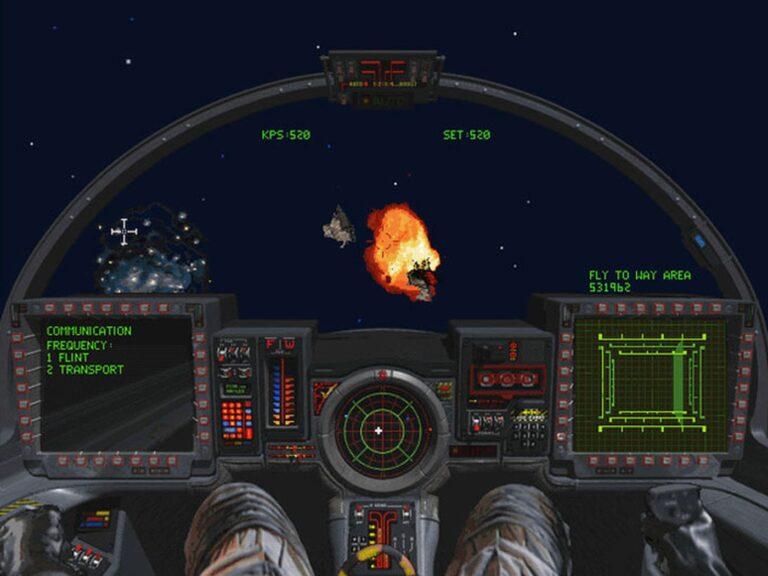
Wing Commander, The Sci-fi Series That Brought Gaming to the Mainstream
Wing Commander is a long spanning franchise that ran steadily from 1990 to 1997, before a gap and final release in 2007. Players would launch their ship into space and complete missions, though the games became primarily known for their extensive storytelling through cutscenes. The combat simulation games weren’t all for the series. Its story was also loosely carried over to an animated show, a card game adaptation of Wing Commander III: Heart of the Tiger, and eleven novels. Origin Systems, Inc. set new standards that helped push the gaming media forward with each release.
Wing Commander (1990)
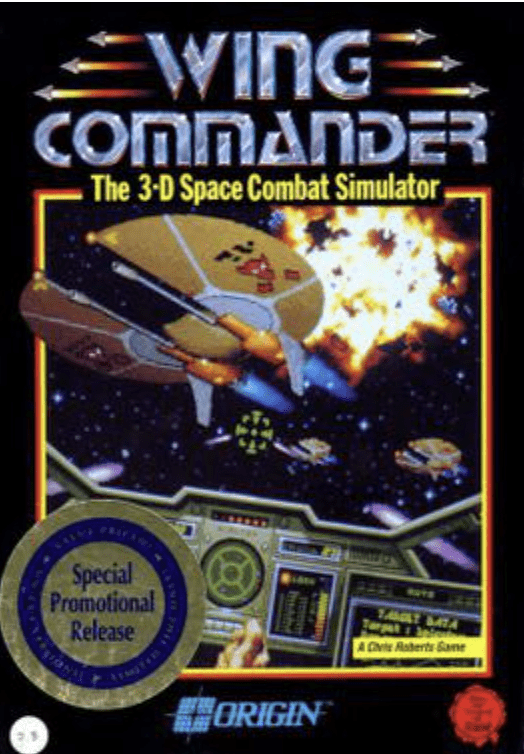
In the first entry of this series, players follow an unnamed hero. The campaign featured an “open story” path where players could progress as long as the protagonist survived. However, failing objectives could lead to fighting with inferior ships and the AI wingman could die permanently. This was meant to avoid players being locked into either a “good” or “bad” route. The Original Wing Commander was released on floppy disk for PC. It helped bring computer gaming out of the hobbyist sphere. Later releases became available on SNES, Macintosh, Sega CD / Mega CD, and others as the game’s success grew.
Wing Commander II: Vengeance of the Kilrathi (1991)
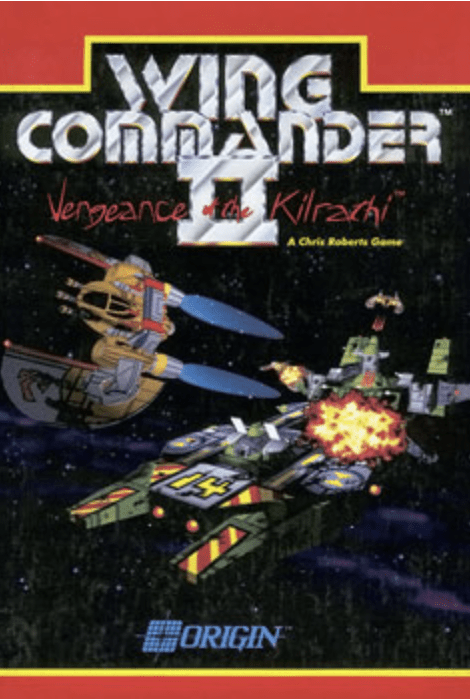
This sequel kept much of what players expected; an interstellar war between the Terran Confederation and the felinoid Kilrathi, companions, as well as a plenty of spacecrafts to choose from. Where Vengeance of the Kilrathi differs is the emphasis on narrative. It introduced early gamers to sprite animated cutscenes and some of the first voice acted characters. That made the gameplay much more structured than the original Wing Commander. The game’s reception was glowing, however, and led some to speculate it set the standard for sound cards at the time.
- Wing Commander Academy (1993)
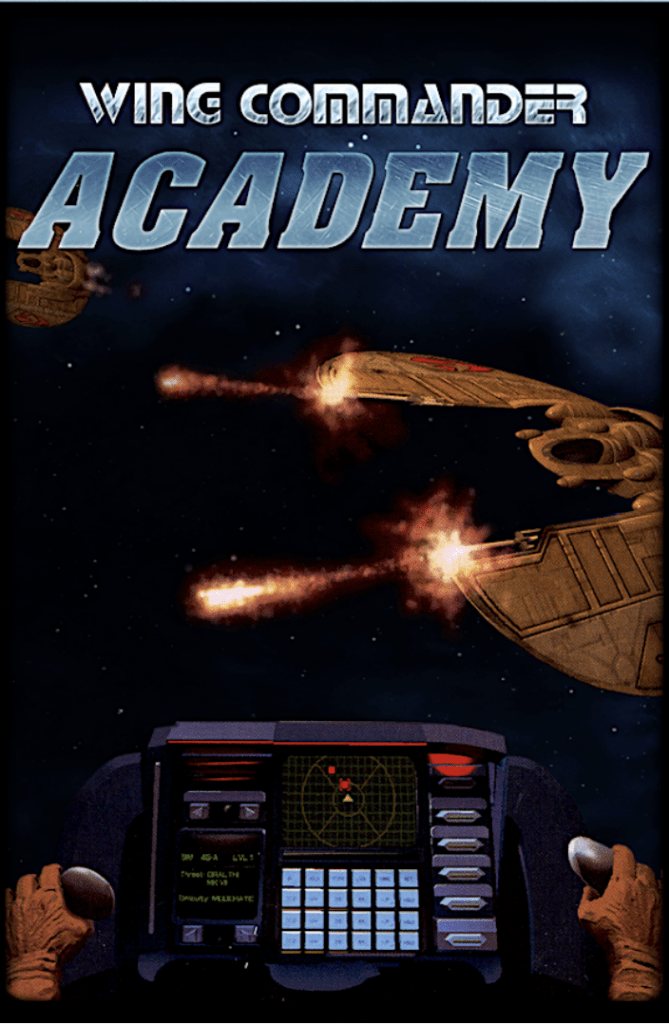
This entry into the Wing Commander franchise isn’t a game per say. Instead, it allows players to create their own missions or use randomly generated events to train as a Confederation pilot. All companions from the previous games are available to fly with. In addition to this game, there was also a thirteen episode animated series with the same name. It aired in 1996 starring Mark Hamil, Thomas F. Wilson, and Dana Delany. Ron Perlman and Jennifer Hale (Mass Effect, Metal Gear Solid, Metroid Prime) also had small roles.
- Wing Commander Privateer (1993)
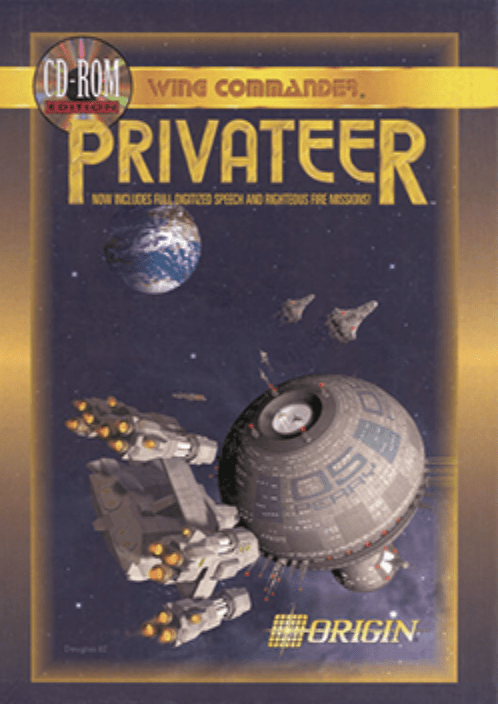
In Privateer players will take on the role of a pirate, merchant, or mercenary instead of navy pilot. This game is also open ended. Players are allowed to explore more beyond the game’s main campaign. The game can even be played after the plot has been resolved. Privateer pushed new boundaries by updating the graphics to give an illusion of being 3D. It introduced fractions and their response to the player are based on choices made during gameplay. Audience reception to the game gave high praise to its expanded choice system and less rigid gameplay, despite some technical incompatibility.
- Wing Commander III: Heart of the Tiger
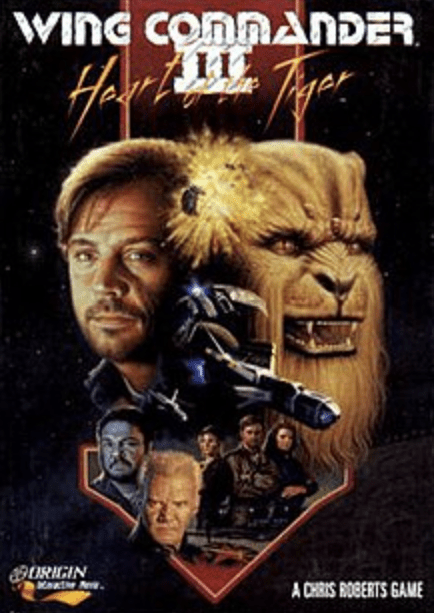
Heart of the Tiger was a major hit for the franchise. It used extensive full-motion video that adds up to over two hours of live action cutscenes. Heart of the Tiger also starred Mark Hamil, Tom Wilson, and Malcolm McDowell as well as John Rhys-Davies. The game used these cutscenes to primarily drive the story forward with minimal choices. This game also gave the protagonist an official name, Colonel Christopher Blair.
- Wing Commander: Armada (1994)
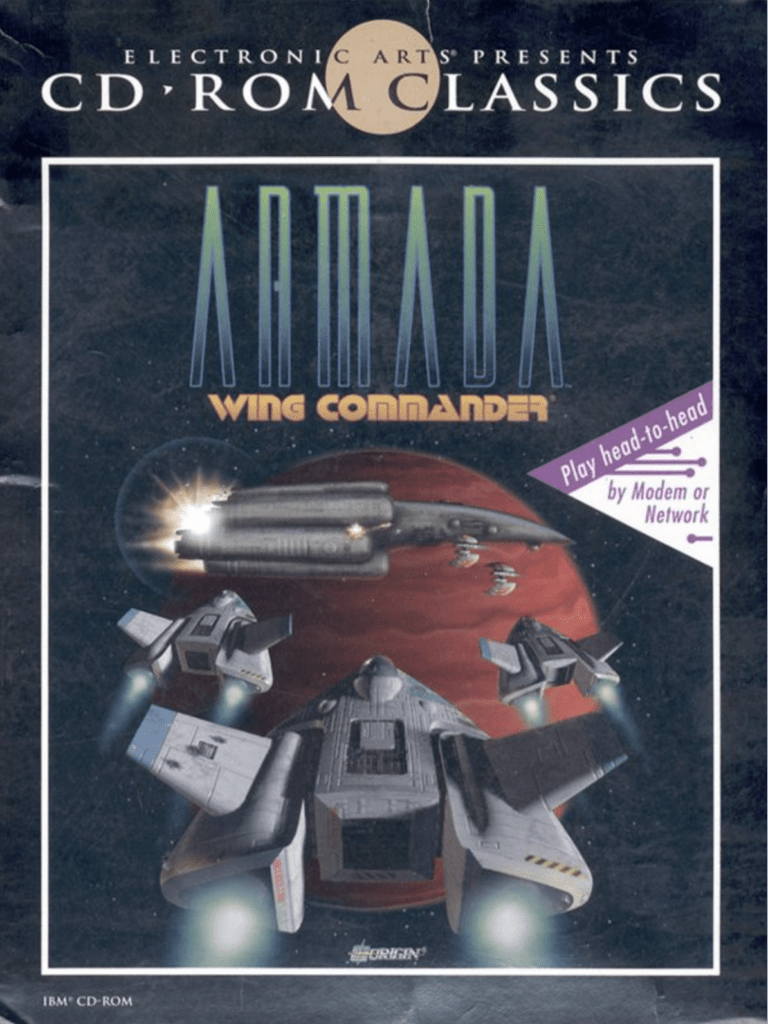
Armada is the first Wing Commander game to have both single player and multiplayer modes. It also has full 3D rendering for the ships. The single player mode has AI controlled enemies. While multiplayer allows playing players to go through each mode cooperatively or head to head. The Gauntlet, fifteen levels of increasing difficulty, mode from Academy makes a reappearance. This time the challenge can be tackled with a friend. Like Academy, this game is heavily gameplay focused over narrative. Armada does have a short campaign for anyone who needs just a little bit more of the Wing Commander universe.
- Wing Commander IV: The Price of Freedom (1996)
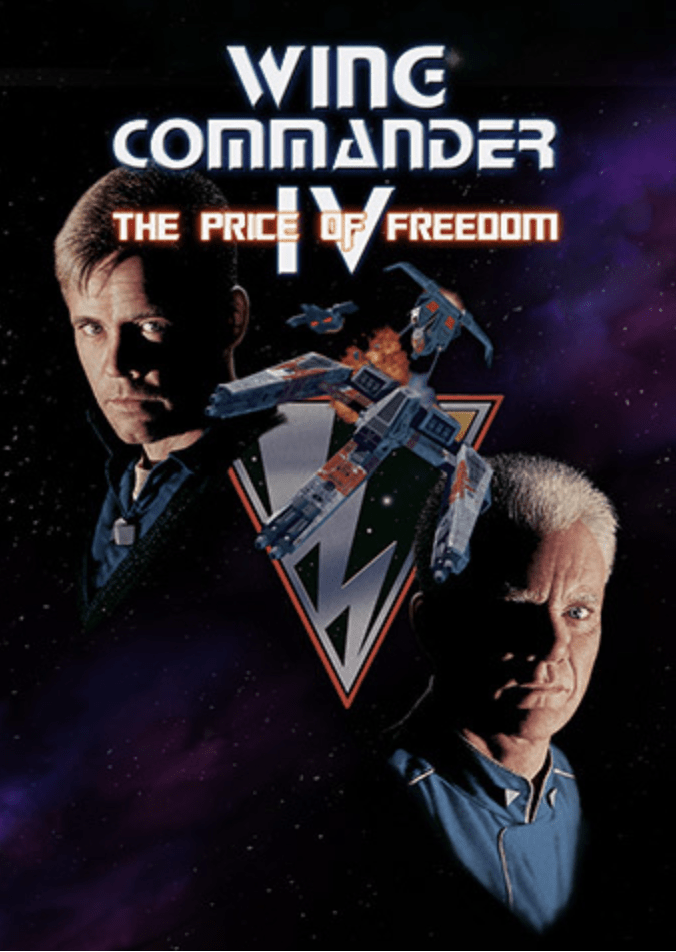
Price of Freedom is the franchise’s fourth installment. The story follows a chaotic transition period after the war that’s been at the forefront of the series so far. A novel further exploring the story was published eight months later. In Price of Freedom players were able to control Christopher Blair aboard their ship and have conversations with the crew for the first time. Gameplay consists of close range dogfights, but each fighter has limited energy and two shields that must be broken. Being successful at mission objectives isn’t the only thing to be concerned with though. Those crew conversations can affect the crew’s morale, changing the ending you get.
- Privateer 2: The Darkening (1996)
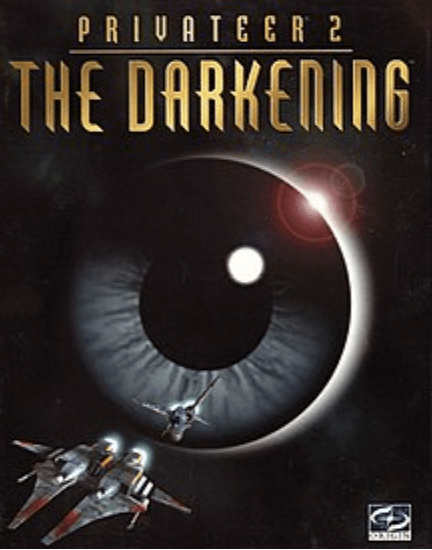
Like the first game, The Darkening takes players to a remote sector with its own history. Many of the story beats and mechanics will be familiar at this point in the Wing Commander franchise. It still allowed players a free range on how they navigated its campaign, but The Darkening was mainly praised for the flight mechanics and game length. It was criticized for not following the established Wing Commander storyline. The Darkening’s story, told through FMV cutscenes featuring an all-star cast, won critics over in the end. One actor, Jürgen Prochnow, would later go on to play Commander Paul Gerald in the Wing Commander feature film.
- Wing Commander: Prophecy (1997)
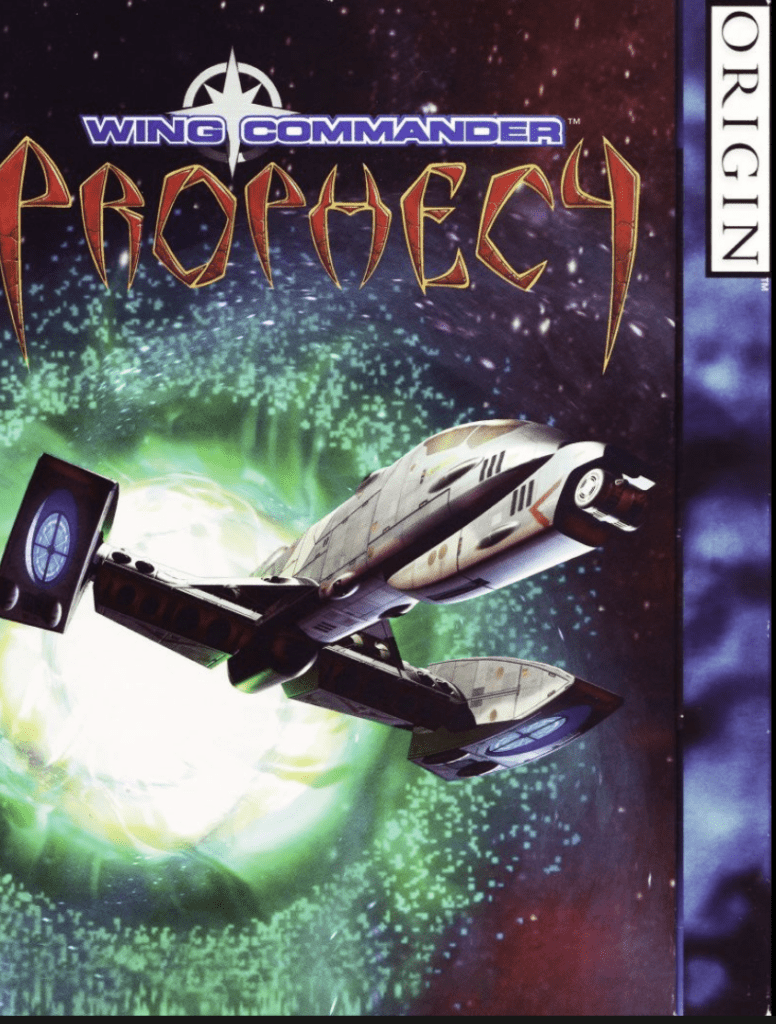
Prophecy released on PC and later the Game Boy Color. Both versions received a lukewarm response upon release, though the narrative was highly praised once again. Prophecy introduced a “basic” mode that allowed new players to jump into the series. They will follow Lance Casey, the son of Admiral Michael Casey from the original Wing Commander, as he seeks to make his own legend. In expected fashion, players can fail or succeed at objectives and continue. The game will, potentially, become much harder as the enemies outpace the player. The GBA version sets itself apart by including multiplayer and groundbreaking graphics for the system.
- Wing Commander – film (1999)
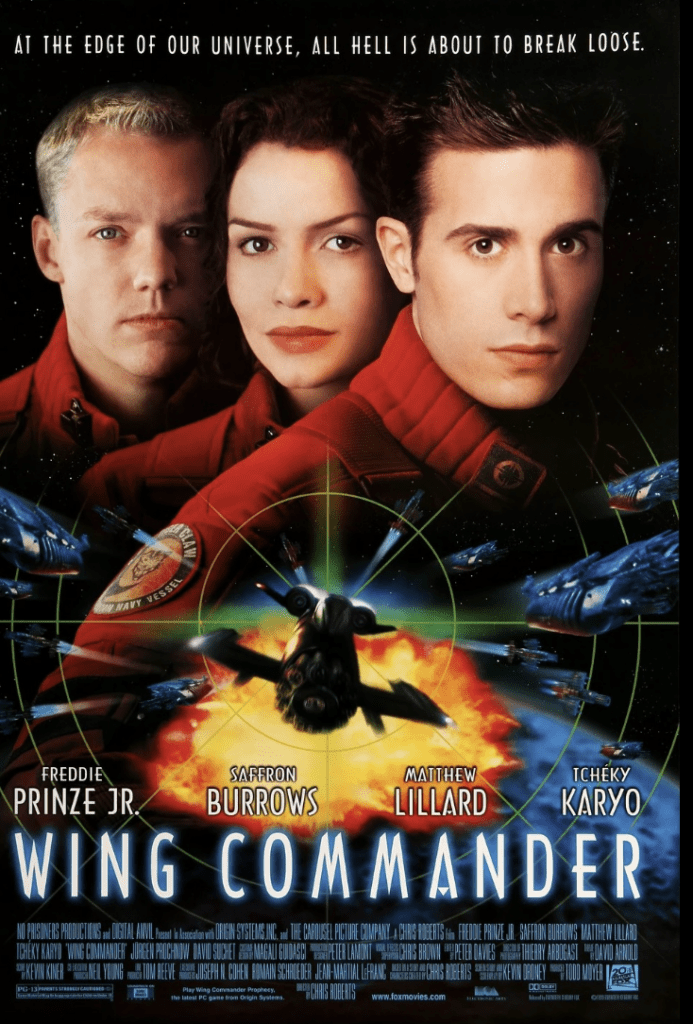
The Wing Commander feature film follows Christopher Blair and the interstellar war between empires, but made a lot of changes. From the appearance of the Kilrathi to casting actors with little resemblance to the original characters. At the time, these changes were harshly criticized. Despite being critically panned, events and ships from the movie. The film’s novelization expanded on its story. It included plot points that were ultimately cut from the movie, making the overall narrative stronger.
- Wing Commander Arena (2007)
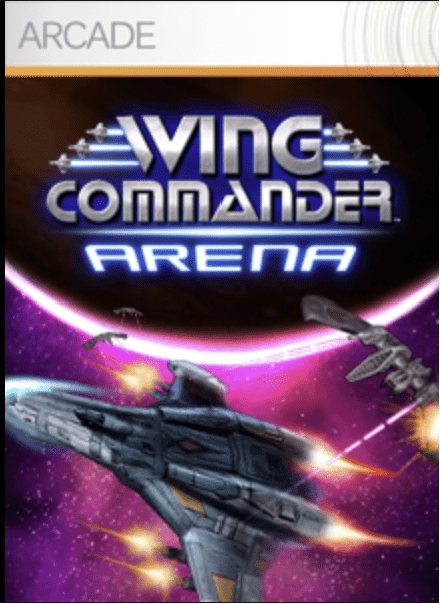
Arena was developed by Gaia Industries and is top down versus the first-person cockpit view familiar to the series. Though it kept the fast-paced combat, offered a variety in equipment, powerups, and ways to tackle a mission, Arena polarized the fanbase. With many coming away dissatisfied. Arena offers large scale multiplayer battles. This is its main draw and if players are looking for a more arcade style shooter, they’ll be right at home with this game. Arena is another Wing Commander game that’s light on the story and throws all of its focus on gameplay. Succeeding in some respects, but not meeting expectations for complex narratives using cutting edge techniques. It was the last hurrah of a beloved space combat franchise.

